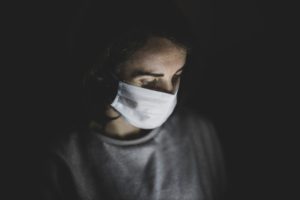The effect of the Covid pandemic on research across EARC
 The Covid pandemic has impacted every part of our lives. We have had to adjust the way we live, the way we work, and the way we relax. Our expectations and understanding of society, security, health and humanity have all changed.
The Covid pandemic has impacted every part of our lives. We have had to adjust the way we live, the way we work, and the way we relax. Our expectations and understanding of society, security, health and humanity have all changed.
Some of the changes have been positive, such as the opportunity to work flexibly and rebalance our lives where possible, reducing our carbon footprint through virtual working, using our cars less, and shopping locally, and engaging with our community through helping out during the crisis.
In other areas the pandemic has been overwhelmingly negative. John Hopkins University estimates that 145 million people have been affected globally, with more than 3 million people dying from the disease. The economy has also been hit; according to the International Monetary Fund, global output has fallen by 3.5 per cent. In both cases, lower income households and minority groups have been disproportionately affected.
It has also led to an incredible level of stress and mental illness, and to a reduction of opportunity, particularly for young people. Our universities have worked tirelessly to mitigate the worst impacts of the lockdown on our students, putting their safety (and that of our staff) at the forefront of our efforts, and ensuring that they continue to get a world-class education through our provision of blended and online learning.
The impact on research
For many of those undertaking research across Eastern Arc, the pandemic has meant that their work has had to be altered, adapted, curtailed or postponed.
All three of the EARC universities – East Anglia (UEA), Essex and Kent – surveyed their staff at different points during the past year. Of the respondents, the majority (ranging from 54 to 67 per cent) had experienced a significant drop in research productivity due to different aspects of the pandemic. The results reflect the three broad causes of this, and the degree to which it had done so.
- The importance of focussing on students: when the pandemic first broke, our academics quickly recognised the need to prioritise the education of their students. As a result, much of their own research was put on hold while they adapted to the new online or blended model of delivery, or responded to the concerns and questions of the students. At UEA and Essex, around a third of respondents (33 per cent and 29 per cent respectively) reported that their work had been affected by this, and over half (53 per cent) of those at Kent said that their work had been affected to a ‘great’ or ‘extreme’ extent.
- The need to work within imposed limits to access and travel: with the restrictions of lockdown, investigators at all three universities reported that they were not able to access essential labs or resources, could not travel nor see collaborators. A similar percentage of respondents at each university had been affected by this: 34 per cent at UEA, 35 per cent at Essex, and 37 per cent at Kent.
- The necessity of responding to changes at home: the need to adapt to their changing personal circumstances also affected our academics, as it did many of those working from home across the country. Additional caring responsibilities and/or coping with personal illness affected 15 per cent of respondents at UEA and 24 per cent at Essex; at Kent 29 per cent were affected ‘to an extreme extent’.
‘Homeschooling means that I am now working effectively part-time,’ suggested one respondent at Kent. ‘I now start working at 5am, then spend half the day teaching my children and then try and work five hours in the afternoon. In the evenings I am usually too tired and need to catch up on housework and prepping teaching for the next day. I have a number of research deadlines…and it is going to be a real struggle to meet them. I simply do not have the time to produce new work.’
This experience is representative of many of the comments we received, and we recognise the huge pressure that our staff have been working under for the past year. As we come out of lockdown we know that the repercussions of such pressure will continue to be felt for some time to come.
We will work with them to try and mitigate the worst effects of this. At the same time we call on external funders to do the same. At the height of the pandemic they demonstrated an invaluable flexibility and understanding in supporting our research. They postponed calls, extended grants and even supplemented funding for those who have been directly affected by the disease.
As the immediate threat of Covid recedes, we would ask that they continue to offer this flexibility and understanding and, by doing so, enable our researchers to return to full capacity and continue – as our vision sets out – ‘to deliver real and tangible change.’
Photo by engin akyurt on Unsplash
